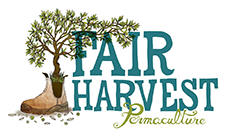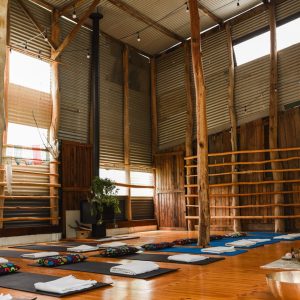Kikuyu and Poultry Kikuyu…..wonderful lawn if you want lawn, great summer feed if you have stock but if you’re into growing fruit and veg and you have kike get ready to set up some serious long term management systems. We use all sort of grazing, scratching and digging animals on our Kikuyu and enjoy all the extra benefits such as eggs, meat, milk and manure so it’s really a mentality change from “how are we going to get rid of this stuff” to “how are we going to make the most of Kikuyu in our integrated permaculture system”. We let go of the idea of eradication a long time ago and unless you have a small block that you can keep on top of all the time or a very small patch of kike that you can isolate early in the piece it’s probably worth getting used to idea of it being a part of your life and garden.
Kikuyu and poultry as lawn Kikuyu does make great lawn, and if a lawn can be looked after using biological resources rather than machines it sure makes it a lot more sustainable. Geese are fabulous lawn mowers and can look spectacular wandering around a lawn. They are easy to train to come home at night time with a bit of grain and will generally graze fairy close to home although in summer when the feed drops they will wander further and further. We never really set out to have lawn as such, but as ours is the type of farm that has Kike ground cover everywhere it has turned out that way, in our conditions it does stay green all year round without water and has turned out to be ideal for us as a venue hosting lots of people. Having said that I would never recommend planting Kikuyu as it will dictate your planning forever. A few things to consider when using geese on lawns;
- goose poo – yes its a great fertiliser but you do need to keep a balance if it’s on your lawn, we find that during the wetter months it disappears quite quickly into the soil but as the grass growth slows down and the there is less rain to wash it in it can become pretty unpleasant.
- long grass – geese tend to leave the long straggly grass and focus on the shorter shoots, you may need to use a whipper snipper or lawn mower before the geese, just to get things started
- grass growth – differs a lot according to the season so at some times the geese will work really hard to keep up (you may even need to help them with machinery) and at other times they may run out of grass. We have found that if we breed successfully in the early spring the enlarged flock will keep up with the spring/early summer growth then we have to reduce the numbers
- veggies – geese love veggies so don’t kid your self that they will mow around them, you can use fairly low fencing for geese as they will tend not to fly
- water – geese need a good clean water source, make sure you keep this away from your recreational areas as they will spend al lot of time in this area (try putting a removable bath under a tree and empty it daily)
Kikuyu and poultry in the orchard Establishing an orchard in Kike is not ideal and we spent months preparing the ground with pigs, chooks and cover crops before planting the trees, followed by hand weeding and chooks (with protection at the root zones) for young trees. Now that the trees are mature and their roots have established the poultry are working harder than ever and the combination of thick mulch, geese, chooks and shade ( from mature trees) is at last starting to create a space where kike is no longer the dominant species. A few points to note;
- Geese will keep eating Kikuyu down to its shoots, when there is no grass left they will actually dig for shoots (but they will be hungry and need extra grain).
- Both chooks and geese love deciduous fruit so you can’t use them during the fruiting months, we have our deciduous orchard (fruiting October to May)and our citrus orchard (fruiting May – Oct ) separate which is good for alternating poultry.
- The geese will eat ripe citrus.
- Once the geese have eaten the Kikuyu down to nothing we put the chooks in to start scratching, this is a great time to add loads of mulch and/or woodchips
- Ducks in the orchard are a great option, especially once the geese and chooks have dealt with the weeds, they will help with pest control especially with fallen fruit and they cant reach the ripe fruit. We never run ducks with other poultry as they dirty the water and can carry disease.
- A netted orchard can double up as a crow safe nursery for young poultry
- Always observe what is happening in your particular situation and be prepared to change, hungry geese may start to damage the bark of trees
Kikuyu and poultry in the veggies – we do use poultry to prepare veggie beds but will leave that for another blog as there is a lot to consider when designing rotational poultry systems for annual veggies and we are still refining it!



















Great article, thanks!